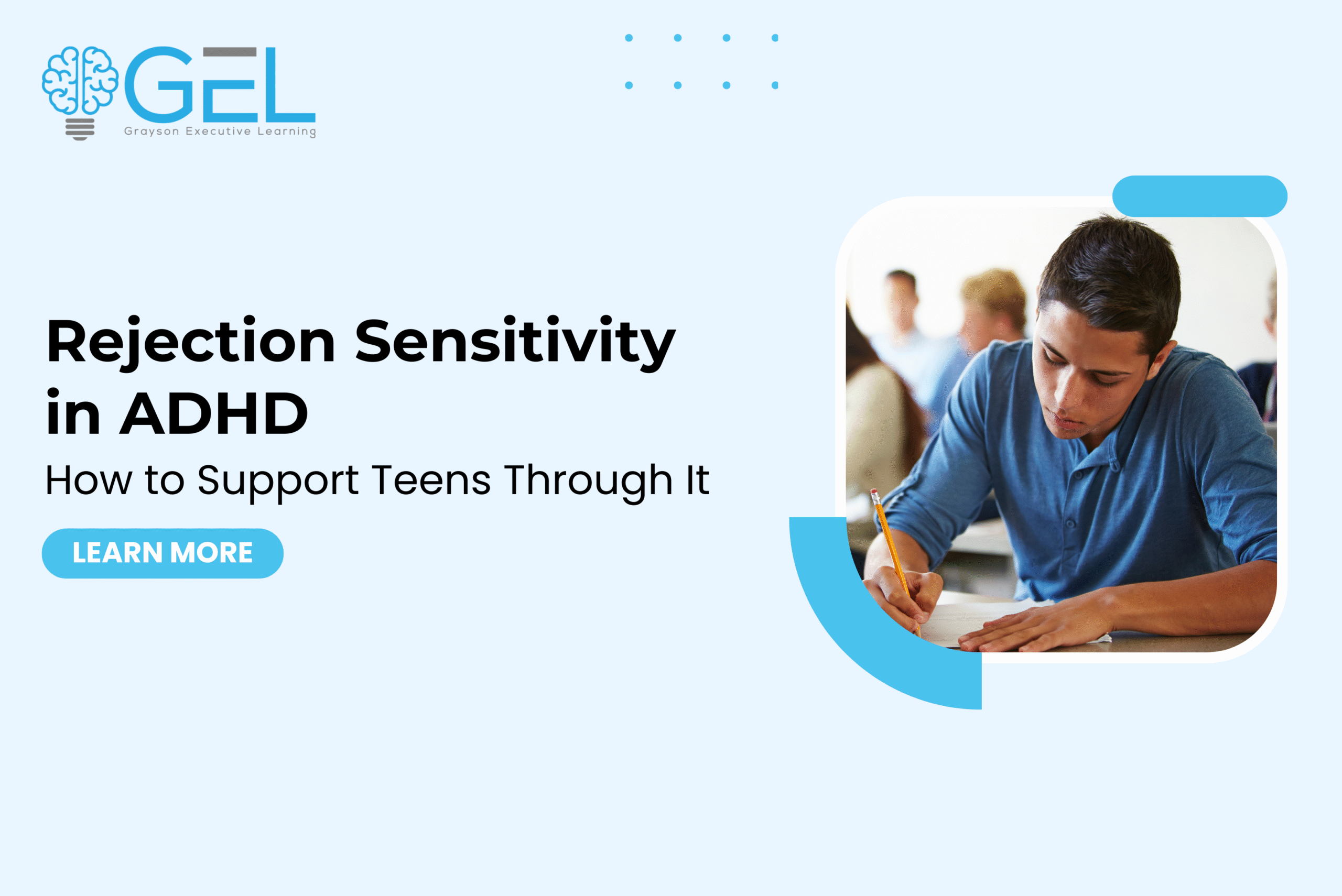For many parents, one of the hardest parts of raising a teen with ADHD is watching how deeply they react to even the smallest criticism or perceived rejection. A simple comment from a teacher, a missed text from a friend, or a correction at home can feel crushing. This intense emotional reaction is often linked to something called rejection sensitivity dysphoria (RSD). While RSD is not a formal diagnosis, it is a well-documented challenge for many people with ADHD, and it can significantly affect a teen’s confidence, relationships, and mental health.
The good news is that with understanding and the right strategies, parents can help their teens build resilience and learn to manage these overwhelming feelings in healthier ways.
What Is Rejection Sensitivity in ADHD?
Rejection sensitivity describes extreme emotional pain triggered by real or perceived rejection, criticism, or failure. For teens with ADHD, these emotions can feel so powerful that they take over completely. Brain imaging studies show that people with ADHD have differences in how the amygdala (the brain’s alarm system) and the prefrontal cortex (which regulates impulses and emotions) work together. This makes emotional reactions hit harder and linger longer.
In fact, a 2018 study found that adolescents with ADHD were far more emotionally reactive to peer feedback than their peers, even when the feedback was neutral. More recently, a 2024 study confirmed that students with higher ADHD symptoms reported significantly more rejection sensitivity, including greater fear of criticism or negative evaluation. This means your teen’s reactions are not about being dramatic or overly sensitive. They reflect genuine neurological differences in how their brain processes emotions.
How Rejection Sensitivity Affects Teens
Teens experiencing RSD often describe it as feeling “too much” or being unable to let go of even minor negative experiences. The impact shows up in many ways:
- Low self-esteem and self-doubt: By age 12, children with ADHD hear up to 20,000 more corrective messages than their peers. Over time, this constant feedback can create a negative self-image. This fear of criticism is especially common for high school students who are navigating social pressure, academic expectations, and rapidly shifting peer dynamics.
- Social anxiety: Teens may fear that friends dislike them or will abandon them, leading to people-pleasing or avoiding social situations altogether.
- Perfectionism and procrastination: To avoid the pain of rejection, some teens may hold themselves to impossible standards or put off tasks for fear of failure.
- Emotional outbursts or withdrawal: The overwhelming shame, embarrassment, or fear of letting others down may cause sudden anger or complete disengagement.
- Family conflict: Parents’ well-intentioned corrections can sometimes feel like rejection to a sensitive teen, leading to more tension at home.
Left unaddressed, rejection sensitivity can spiral into anxiety, depression, or substance use, making early support essential.
Practical Ways Parents Can Help
Supporting a teen with rejection sensitivity does not mean eliminating all criticism or disappointment, but rather equipping them with tools to manage it. Here are evidence-based strategies parents can use:
1. Normalize and Validate Emotions
Remind your teen that feeling hurt is not a weakness but part of how their ADHD brain works. Saying, “I understand that felt really painful for you” helps reduce shame and builds trust.
2. Reinforce Strengths and Effort
Teens with ADHD often internalize negative feedback more strongly than positive comments. Make a point to highlight their strengths, persistence, and growth. Specific praise like, “I noticed how hard you worked on that essay,” can help balance the weight of criticism.
3. Teach Emotional Regulation Skills
Simple techniques like deep breathing, grounding exercises, or taking short breaks can help calm the body’s stress response. Practicing these skills during calm moments makes them easier to use when emotions are intense.
4. Encourage Self-Compassion
Teens with rejection sensitivity often engage in harsh self-talk. Teach them to challenge negative thoughts and replace them with affirmations such as, “I can make mistakes and still be a good person.” Modeling self-compassion as a parent is equally powerful.
5. Reframe Negative Thoughts
When your teen spirals into “They must hate me,” gently ask, “What else could be true?” Helping them consider alternative explanations can reduce the intensity of their reaction.
6. Build Family Connection
Shared family activities that focus on joy and connection provide a safe space for teens to practice resilience. This could be a weekly game night, cooking together, or a family hike. These positive experiences help balance the weight of rejection.
7. Partner With Teachers
If rejection sensitivity is affecting school life, share this information with teachers or counselors. A supportive teacher who communicates clearly and compassionately can make a big difference in how your teen experiences feedback.
When to Seek Professional Support
While parental support is vital, some teens may need additional help. Therapy, especially cognitive behavioral therapy (CBT), has been shown to help teens reframe negative thoughts and practice healthier coping skills. Executive function coaching can also help teens build confidence in managing challenges and setbacks.
If your teen shows signs of depression, persistent withdrawal, or extreme emotional pain, do not wait. Early professional support can prevent these challenges from becoming long-term struggles.
Helping Teens Build Resilience
Rejection sensitivity in ADHD can feel overwhelming, but it does not have to define your teen’s future. By validating their experiences, teaching coping skills, and reinforcing their strengths, you can help them build the confidence to face criticism and setbacks with greater resilience.
Grayson Executive Learning (GEL) is a boutique Academic and ADHD/Executive Function Coaching practice that specializes in providing premium one-on-one academic coaching services to high school and college students with ADHD and executive function difficulties.
Click here to learn how we can help your student truly reach their academic potential while developing critical life and independence skills.
We look forward to serving you.


